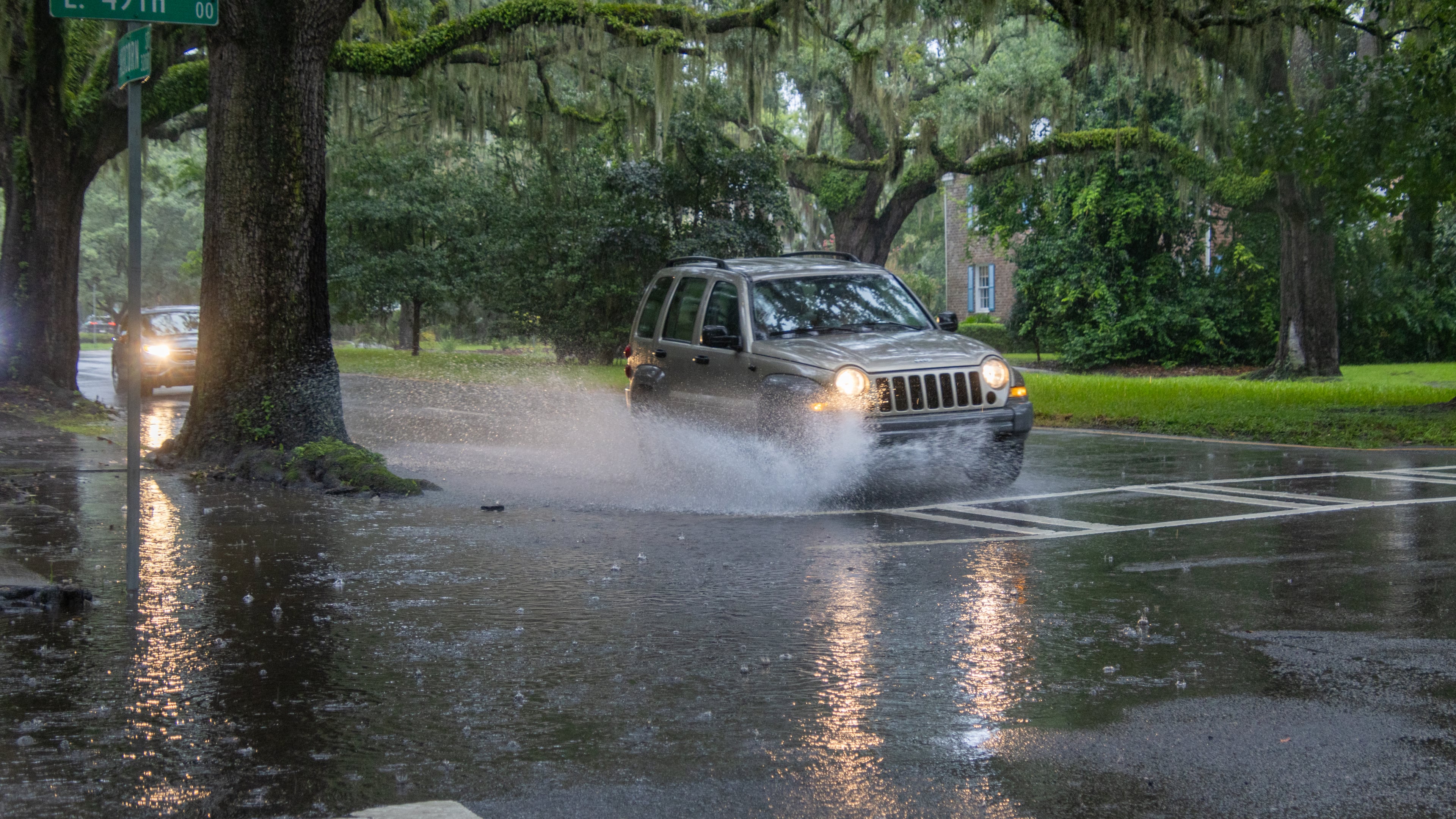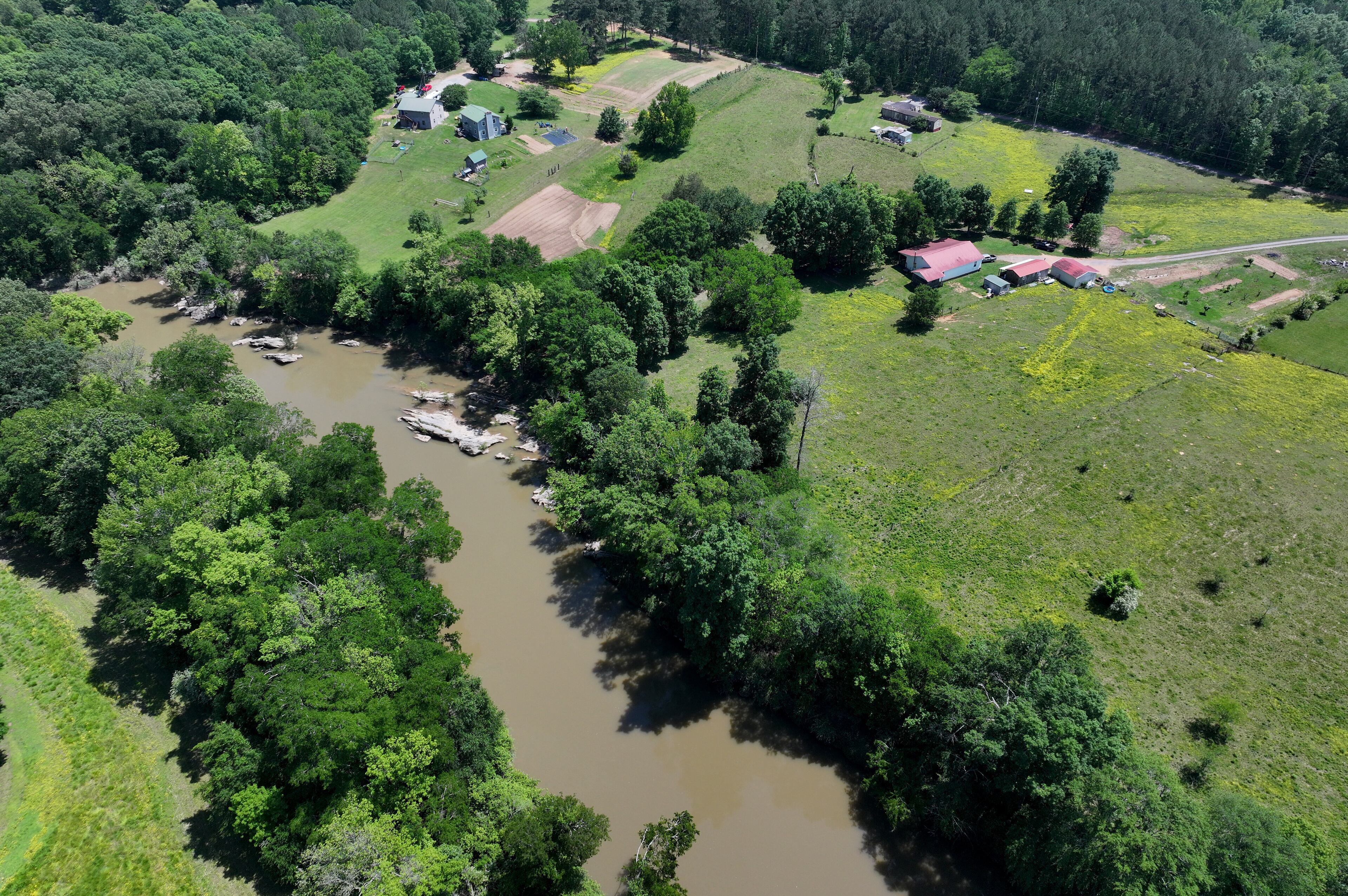Georgia cities are struggling with climate change

Climate change is no longer a distant threat or a term created to explain extreme weather events. Instead, it is a present reality affecting cities across Georgia. From rising temperatures to unusual weather events to more frequent and severe weather events, the impacts are being felt by communities statewide. In some cases, communities face mass devastation and costs to rebuild.
Cities such as Atlanta, Savannah and Brunswick are on the front lines, grappling with the consequences of a warming planet. Global warming is primarily caused by the buildup of greenhouse gases in the Earth’s atmosphere that can be attributed to human pollution from things such as burning fossil fuel, deforestation, pollution from agriculture and industrial processes. The Earth’s atmosphere traps heat from the sun, but greenhouse gases cause more heat to be trapped, leading to the “greenhouse effect.” This gradually warms the planet, affecting weather patterns, melting ice caps and affecting ecosystems.

Whether it is referred to as climate change, global warming, weather extremes or environmental challenges, the climate is changing — including more severe and frequent storms with extreme and abrupt temperature changes. In Georgia, many cities and communities have been affected by some form of weather-related extreme. “Hotlanta,” for instance, has seen a significant increase in extreme heat days. The city’s “heat wave season” has lengthened by more than 80 days since 1961, posing serious health risks, especially to vulnerable populations, including the elderly and those with preexisting conditions. In 2024, resilience hubs were constructed to provide shelter from weather extremes for many in the greater Atlanta area and neighboring communities. The Occupational Safety and Health Administration proposed a rule aimed at preventing heat-related illnesses and injuries among workers, and some states have adopted their own heat protection standards. Temperatures reaching 100 degrees for several days create many challenges and increased risks. The rising temperatures also exacerbate air quality issues, leading to higher levels of ground-level ozone and particulate matter.
Savannah and Brunswick face their own unique challenges. Coastal flooding is becoming more frequent and severe because of rising sea levels. These cities are also at risk from more intense tropical storms and hurricanes, which can cause extensive damage to infrastructure and homes. The economic impact is significant, with increased costs for disaster response, recovery and insurance.
Despite these challenges, there is hope. Collaboration and innovative solutions can help Georgia’s cities adapt to and mitigate the effects of climate change. One promising approach is the concept of “agrivoltaics,” which combines solar energy production with agriculture. This method not only generates renewable energy but also supports sustainable farming practices, improving soil health and reducing the need for chemical herbicides. Another key strategy is enhancing green infrastructure. Cities can invest in more parks, green roofs and urban forests to help absorb excess rainwater, reduce urban heat islands and improve air quality. These measures not only address climate change but also enhance the quality of life for residents.
Public participation and community engagement are essential to successful climate action. By involving local communities in planning and decision-making processes, cities can ensure that solutions are tailored to the specific needs and priorities of residents. This approach also fosters a sense of ownership and responsibility among community members, leading to more sustainable and long-lasting outcomes.
Collaboration between different sectors is also essential. Governments, businesses, nonprofits and academic institutions can work together to develop and implement innovative solutions. For example, the Environmental Venture Projects and Realizing Environmental Innovation Program at Stanford University support interdisciplinary research and collaboration to address environmental challenges. Similar initiatives in Georgia could bring together experts from various fields to tackle climate change and its effects.
Though the challenges posed by climate change are significant, they are not insurmountable. By embracing collaboration, innovation and community engagement, Georgia’s cities can build resilience and create a more sustainable future. The time to act is 2025, as the potential for positive change is substantial.
Erica Bibbey of Marietta is a member of Citizens Climate Lobby.

